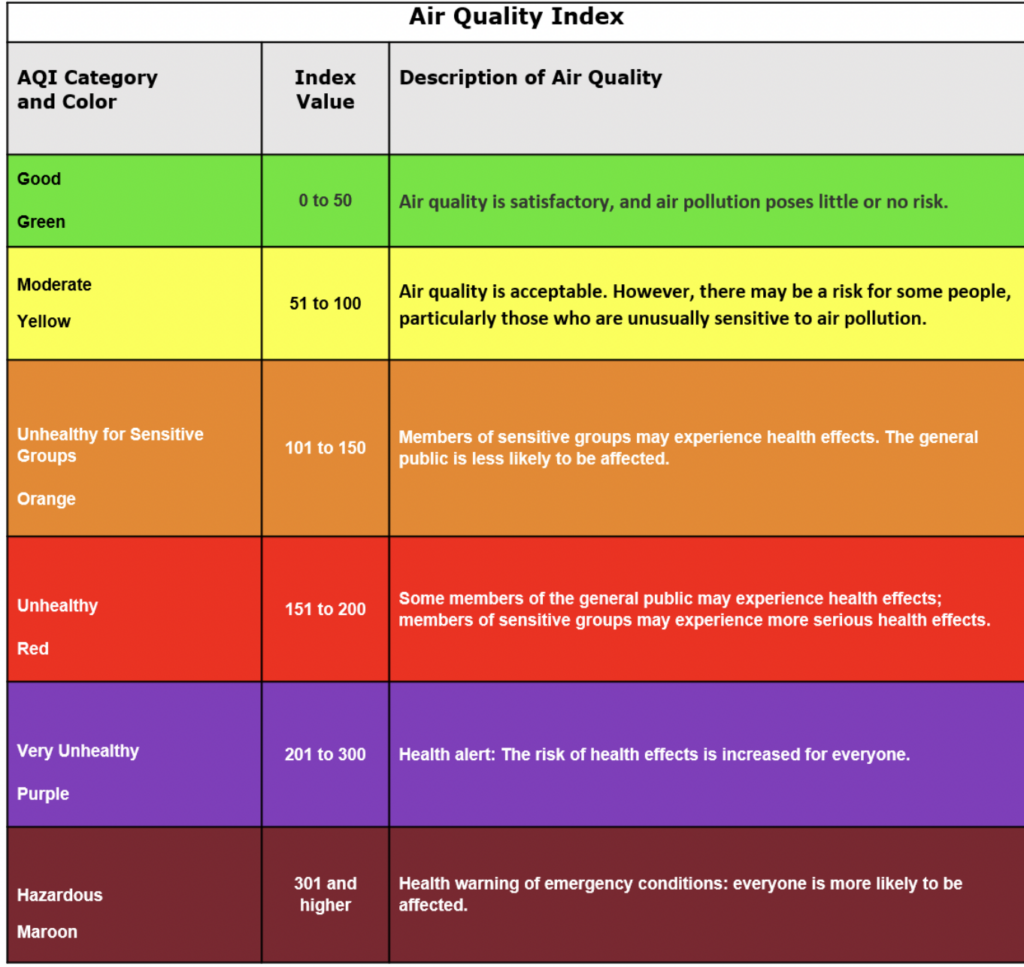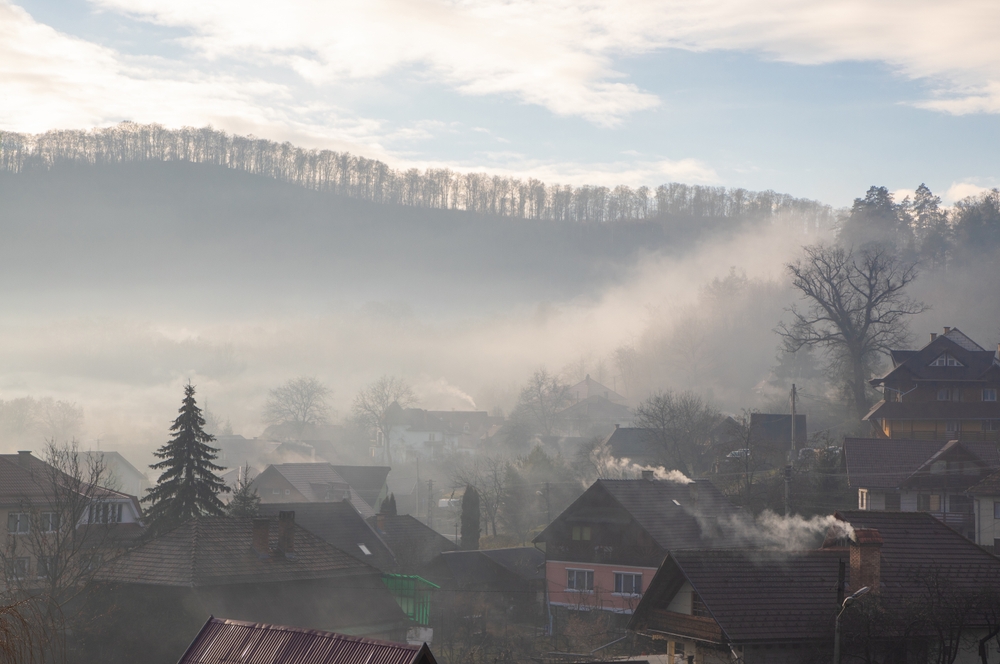Why is wildfire smoke a health hazard?
Wildfire smoke is a mixture of both gaseous and particulate pollutants, including carbon monoxide, PAHs (polycyclic aromatic hydrocarbons), sulfuric acid, and ammonia sulfate. Each of these substances is potential health risks.
What chemicals are measured in the AQI?
Typically, the air we breathe contains some pollutants. The US AQI is an EPA index that measures five pollutants: carbon monoxide, nitrogen dioxide, sulfur dioxide, ground-level ozone., and ultra-fine particles/aerosols.
Air Quality Index scale – A yardstick to measure risk
The AQI scale of risk is as follows:
-
- Good: 0 – 50
-
- Moderate: 51 – 100 may be a problem for the environmentally sensitive
-
- Unhealthy for sensitive groups: 101 – 150
-
- Unhealthy for everyone: 151 – 200
-
- Very unhealthy: 201 – 300
-
- Hazardous emergency conditions: 301+
Learn more about the AQI here.
It should be noted that the AQI is an index of air pollution and risk. It does not measure the many thousands of potential air pollutants. It is, however, useful in helping us decide the actions we need to take to stay safe.
Does wildfire smoke affect indoor air quality?
Wildfire smoke can affect your Indoor Air Quality IAQ. That’s because outside air enters your home through cracks in your foundation and openings around doors and windows. Additionally, air can enter through fan openings and air intakes in your HVAC system.
Managing IAQ with a high AQI
Here’s what you can do when the AQI is high:
-
- Keep your house as well sealed as possible.
- Create a clean room in your house that accommodate everyone in your household.
- Keep windows and doors closed. If your A/C has a “fresh air option” make sure it is turned off. That way, you keep the outside air out and recirculate the existing air in your room.
- Use a portable HEPA air cleaner with activated carbon to remove both particulates and gases from the air. Avoid ozone-producing air purifiers.

